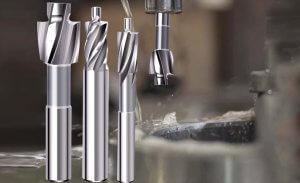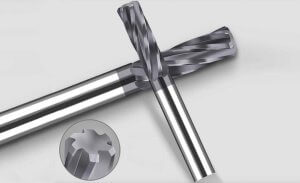Introduction to High-Volume Aluminum Machining: Precision and Speed in CNC Services
The field of high-volume aluminum machining, where countless parts are constructed regularly with impeccable precision, stands as one of the most significant elements within the manufacturing industry. Accuracy and speed form two vital pillars, especially when utilizing Computer Numerical Control (CNC) machines in this process. This is because they govern the efficiency, quality, and overall output of the operation.
- Precision in a CNC machine assures accurate dimensions, ensuring each part adheres strictly to its design specifications. A minute error could lead to dysfunctional components or assembly failures, ultimately impacting the end product’s performance.
- Beyond accuracy, speed plays an equally crucial role. The ability of these machines to maintain a consistent high production rate directly influences throughput, deadlines, and potentially the bottom line of the business.
Hence, maintaining both precision and speed during high-volume aluminum machining is essential for successful operations and meeting customer demands without compromise on the quality.
Understanding the Basics of CNC Machining
Computer Numerical Control (CNC) machining, at its core, is an advanced technique used to transform a stock material into a desired shape or design with utmost precision. The purpose of CNC machining lies in streamlining high-volume aluminum machining processes by eliminating manual labor and reducing possibilities of human error. It operates through sophisticated software that commands the movement of factory machinery and tools according to pre-programmed instructions.
- Take for instance a lathe machine, which utilizes rotary cutting for shaping metal. In a traditional setup, an operator would manually control all operations. With CNC, however, the quality and speed are substantially enhanced
since everything is automated. - Another example can be noted in milling operations. A conventional miller requires individual setup for each operation which translates to more time and effort. A CNC miller on the other hand can execute complex procedures like drilling and slot cutting simultaneously, thereby saving time and boosting productivity.
Thus, understanding the basics and principles of CNC machining provides insight into its efficiency and precision in high-volume aluminum production.
The Role of Aluminum in Manufacturing
Aluminum, the third most abundant element on earth and a cornerstone material within the manufacturing industry, plays a significant role in various industrial applications due to its unique properties. Renowned for its high strength-to-weight ratio which surpasses even that of steel, aluminum is notably lightweight yet remarkably durable, making it an ideal choice for parts that need to be very light while withstanding heavy loads.
- Corrosion Resistance: With its natural oxide layer, aluminum is exceptionally resistant to corrosion, enhancing product longevity in harsh environments.
- Machinability: Aluminum’s excellent machinability allows speedy and precise CNC machining services, minimizing production time and reducing costs.
- Thermal Conductivity: Exceptional heat dissipation attributes make aluminum a perfect choice for applications such as heatsinks in electronic devices.
- Eco-friendly: Being recyclable without loss of properties, aluminum promotes sustainable practices in manufacturing sectors.
In summary, these advantageous traits combined make aluminium incredibly suited for numerous aspects of manufacturing including aerospace, automotive, electronics, and more.
Precision In Aluminum Machining:
- Material Selection: Aluminum machining requires careful consideration of the specific grade of aluminum to ensure precision and speed in CNC services.
- Service Provider: When seeking high-volume aluminum machining with a focus on precision and speed, it is crucial to partner with a reliable Precision Machining Service that offers expertise in aluminum fabrication and proven capabilities in CNC services.
Speed and Its Impact on Manufacturing Processes
In high-volume aluminum machining, ‘speed’ refers to the rate at which material is removed from a workpiece by a cutting tool. It’s a crucial aspect of CNC machining, directly influencing production efficiency. The faster the machining process, the more parts can potentially be produced in a given timeframe, granted that quality is maintained. This connection between speed and efficiency has made it a paramount parameter to consider during manufacturing processes.
- An example illustrating this impact might involve a simple part requiring 100 total cuts for completion. At a lower operating speed, i.e., 5000 RPM (revolutions per minute), this could take two minutes per cut and result in an overall operation time of around three hours per part. By contrast, if the machine operates at higher speeds – let’s say 8000 RPM – the duration per cut decreases down to just over a minute, therefore reducing the overall operating time to less than two hours. This illustrates how increased speed, combined with precision, significantly enhances productivity without compromising accuracy.
High-Volume Aluminum Machining: Bringing Together Precision and Speed
In the world of manufacturing, high-volume aluminum machining stands as a balancing act that effectively merges precision and speed. The synchronization of these two crucial aspects leads to numerous benefits in CNC services. For starters, utilizing high-speed cutting techniques with a keen focus on precision paves the way for increased productivity by significantly reducing operation times.
- Precision ensures an impressive level of detail and accuracy, resulting in flawless end-products without wasting materials or energy.
- The high-speed nature of this machine technology allows for unparalleled efficiencies in production timelines.
This compelling blend culminates in reduced expenses and enhanced profitability while upholding excellent product quality and consistency. In essence, high-volume aluminum machining leverages both speed and precision to foster efficiency and deliver improved CNC service offerings, thereby posing a game-changing advantage in today’s competitive industrial landscape.
Selecting an Ideal CNC Service Provider
When choosing a CNC service provider that best meets the needs of your high-volume aluminum machining project, there are several key factors to consider. The utmost emphasis should be on precision and speed as these elements greatly impact overall productivity and product quality. One essential factor is the provider’s technological capabilities which include state-of-the-art machinery able to deliver precise cuts at rapid speeds.
The next point to ponder upon is the experience of their team in managing high volume projects; having a technically adept workforce guarantees smooth execution of tasks and prompt troubleshooting when challenges arise. Additionally, availability of substantial material inventory reduces any potential delays due to materials shortage, ensuring faster turnaround times.
Another significant criteria revolves around service providers’ industry track record; check their previous work delivery, customer satisfaction rate, and case studies showcasing their proficiency in delivering speedy, precision-focused services.
- Technological Capabilities: Able to deliver precise cuts at rapid speeds with state-of-art machinery.
- Experienced Workforce: Technically adept individuals who can smoothly execute tasks and troubleshoot effectively.
- Material Inventory: Ample resource availability mitigating potential project delays.
- Industry Track Record: Proven success in delivering high-quality, swift and precision-centric services.
Above all, regardless of how competent a CNC service provider may seem on paper, it is crucial to ensure they understand your specific project requirements to avoid communication gaps and subsequent project lapses. Therefore always go for those who offer extensive consultation and planning processes before initiating any operation.
Potential Challenges in Implementation and Use of High Volume Aluminum Machining
While CNC services that offer high volume aluminum machining hold immense potential for speedy and accurate production, they come with their own set of challenges. The first major concern is the machinability of aluminum; due to its low melting point and softer nature compared to other metals, it tends to gum up on cutting tools, thereby impacting tool life and finish quality. Additionally, aluminum’s thermal conductivity can lead to unwanted heat buildup during machining which interferes with dimensional stability.
The second challenge revolves around maintaining precision during high-volume output. Ensuring consistent accuracy across large batches strains equipment capabilities and highlights calibration deficiencies. Moreover, rigorous inspection protocols are needed to uncover any faults early in the process, adding further complexity and time to operations.
Last but not least, machine-dependent problems such as vibration and spindle speed limit issues can pose significant obstacles too. For instance,
- Inadequate machine rigidity may lead to vibrations, indirectly influencing cut quality or causing tool breakage.
- A constraint concerning spindle speeds poses a hurdle when dealing with smaller diameter tools, compromising productivity rates.
These practical concerns mandate regular upkeep and preemptive troubleshooting to maximize the benefits derived from high volume aluminum machining.
Other Articles You Might Enjoy
- The Evolution of CNC Machining Technology: From Traditional to Advanced Methods?
The Evolution of CNC Machining Technology: From Traditional to Advanced Methods CNC (Computer Numerical Control) Machining Technology refers to the automation of machine tools that operates through a set of…
- Hastelloy vs. Stainless Steel in Chemical Processing Equipment: CNC Machining Perspectives?
Hastelloy vs. Stainless Steel in Chemical Processing Equipment: An Introduction In the realm of chemical processing equipment, two commonly used materials include Hastelloy and stainless steel. Hastelloy, a reputed superalloy…
- Decoding Rivets and Tack Welding in CNC Machining(rivets Mandel)
Computer Numerical Control (CNC) machining has indisputably transformed the manufacturing landscape, providing efficiency, accuracy, and precision like never before. In this realm of unprecedented technical advancements, two methods play a…








